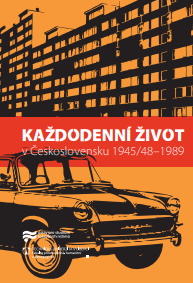Sviatok a jeho inštitucionalizácia v období socializmu (1948-1989) ako nástroj politického marketingu
Institutionalization of the festivities during socialism (1948-1989) as the tool of the political marketing
Author(s): Zuzana Beňušková
Subject(s): Political history, Social history, WW II and following years (1940 - 1949), Post-War period (1950 - 1989), History of Communism, Marketing / Advertising
Published by: Ústav pro studium totalitních režimů
Keywords: Czechoslovakia; socialism; festivities; institutionalization; 20th century; political marketing;
Summary/Abstract: Human collectives tend to divide time between everyday time and the time of the festivities. The feasts have special meaning for them, which is accented by making rituals. A sophisticated system of festivities was created in the ancient empires. The Church decided what the life of the Christian people should look like during festivities and in consequence partly uniformed their living. The representatives of the forming modern national states took control over the festivities during the modern period as a part of the fight for deconsecration. During the time of socialism the festivities became a battlefield of the furious fight between the communist ideology and religion. Secular and national values were thoughtfully linked to the socialist state and the communist ideology in the new system of festivities. That differentiated them from civilian ceremonies and festivities in Western Europe. Festivities with its ritualized representation introduced by state functioned as tools to internalize socialist values and norms and in the same to vent emotions. The new system of festivities was conveniently combined with the holiday and the system of citizen ceremoniousness oriented on the human life cycle was created. In the conditions of the socialist system some people completely refused them, some adapted them in various ways to their own needs, some got around them and some accepted them completely. The religious ceremonies existed at the same time. The duality of the official ceremonies with informal ceremonies created a three part model typical mostly for the 1970s and 1980s. But even the religious ceremonies are not resistant to change and adjust to present needs of their participants.
Book: Každodenní život v Československu 1945/48-1989
- Page Range: 92-115
- Page Count: 24
- Publication Year: 2015
- Language: Czech
- Content File-PDF

